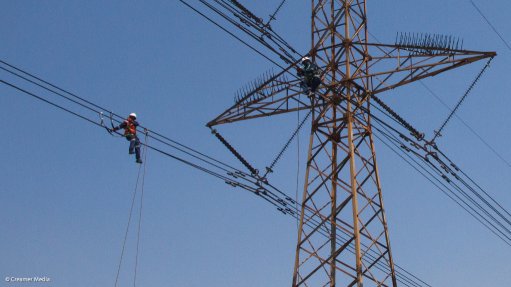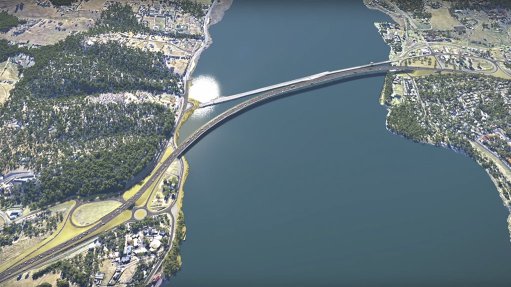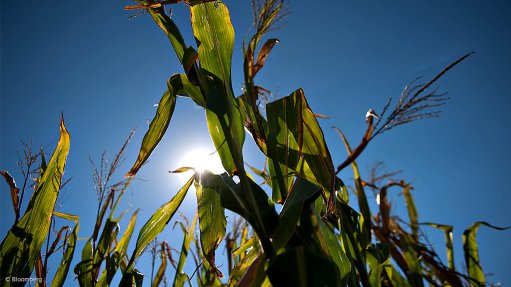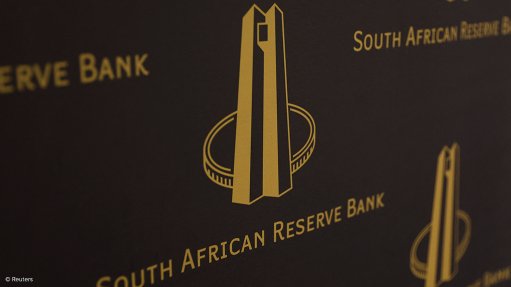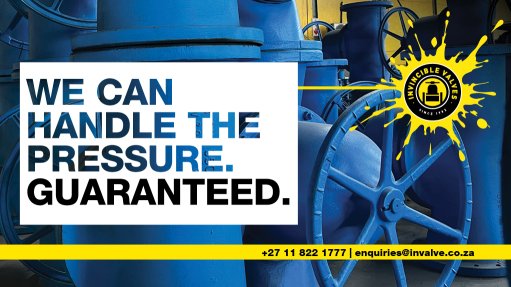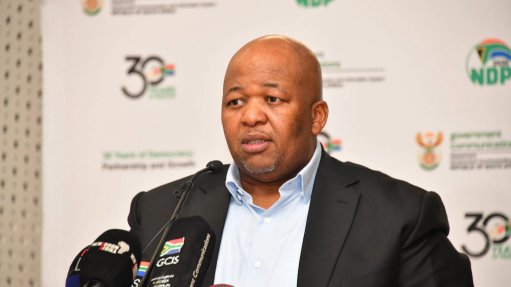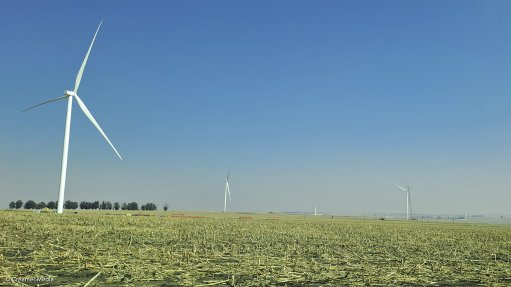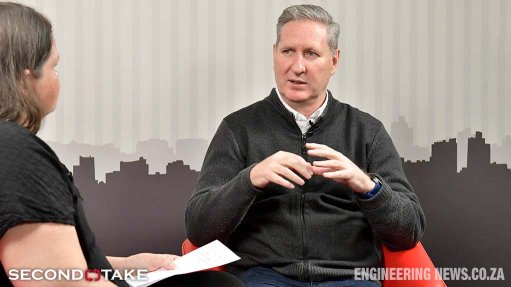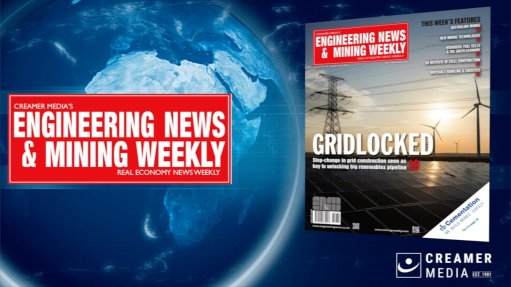Water is key factor in responsible mining



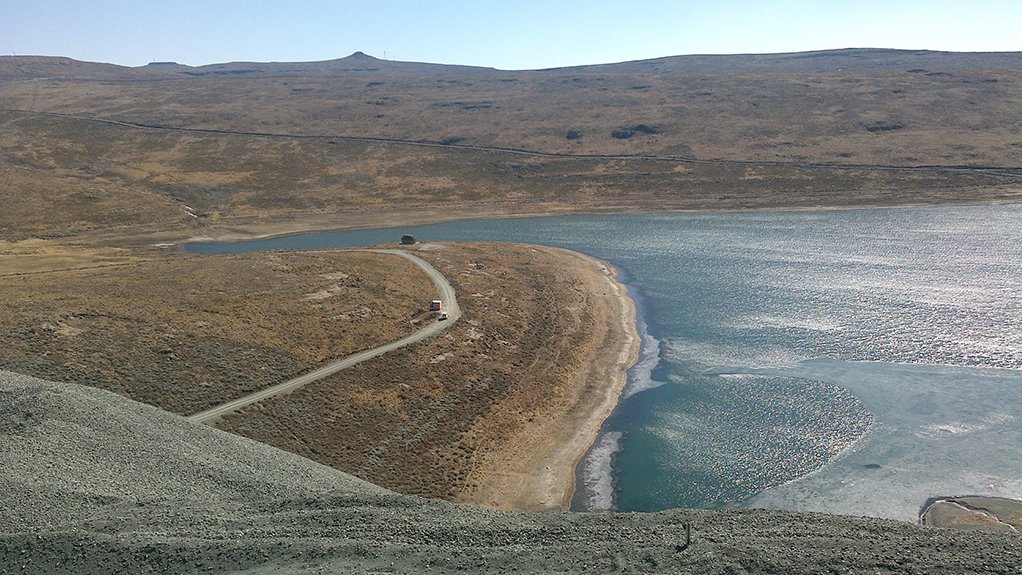
DES MOSSOP SRK is able to apply a range of its mining-related disciplines in mining projects
PETER SHEPHERD During dry months, mines struggle to find sufficient water
SCARCE RESOURCE In the face of climate change, water security is important to consider
The impact of the recent Cyclone Eloise has shown that mines in Mozambique face extreme challenges related to water, which can only be addressed through early planning and continuous management, explains consulting engineers SRK Consulting partner and principal hydrologist Peter Shepherd and partner and principal engineering geologist Des Mossop.
Cyclones are not the only factor that makes water management in the country particularly difficult. An important natural feature of Mozambique is the prevalence of large rivers flowing through the country – such as the Zambezi river that passes through coal, copper and iron-ore mining areas around and upstream of Tete. These rivers are fed by wide catchment areas that extend well into Africa’s interior, with the country’s mines often located in the lower regions of the catchments.
Beyond the risks related to heavy rainfall events, these rivers also risk flooding as a result of upstream rainfall hundreds of kilometres away. This is in stark contrast to most mines in South Africa, which are generally located in drier areas and within the upper reaches of river catchments. When a river like the Zambezi floods, the floodwaters can extend 20 km in width across Mozambique’s typically flat topography – inflicting considerable disruption on all industrial sectors.
The regular occurrence of high intensity storms – linked to the warm sea surface temperatures in the Indian Ocean – are further risks to mining operations. Apart from the damage to infrastructure and operations caused by strong winds, the high volumes of water from these weather events can also cause extended periods of flooding, especially where topography is flat or low-lying, causing post-flood drainage to occur slowly and with more pumping interventions.
Changing Climate
Global warming of the planet is an added concern. In Mozambique, temperatures in excess of 30 ºC are occurring more often and over longer periods of time. Warmer ocean temperatures allow the formation of stronger storms, raising mines’ risk of flooding and erosion damage.
Even with these heavy rainfall patterns, inland regions of the country can experience long, dry periods from late summer through to as late as November. During these months, mines often struggle to find sufficient water for vital operations. On coal mines, this includes ongoing dust suppression activities on run-of-mine stockpiles, waste rock dumps, haul roads and process plants. Climate change is also likely to further exacerbate the variation in rainfall patterns – making for longer respective periods of wet and dry weather.
The overall impact of these extreme conditions is that mines are forced to direct significant expenditure on discharging water in the wet season and finding more in the dry season. Careful storage of surface water wherever possible, the judicious use of groundwater, the effective separation of clean and dirty water, and the active reuse of water is critical to effective water management.
Optimal Storage
Storage of water is often complicated by the fact that a mine’s pits may be located some distance from each other, making it difficult for them to share storage facilities.
The planning of storage dams is required to closely follow the mining plan, to ensure that the dams are in close proximity to pits that need the water. Diverting clean water upstream of a pit also provides an opportunity to augment water volumes in storage nearby – to use in dust suppression in and around the pit, for example. This is a useful strategy to avoid having to convey water long distances from a central point, where possible.
Additionally, mines – often located in remote areas – may not have access to any form of bulk water supply from a water utility to ‘top up’ supply when needed. This highlights the importance of thorough planning and technical studies to not only locate potential water sources, but to acquire the necessary permits and licences that regulations require. This generally involves lengthy processes and could require specialist intervention to research and prepare the necessary field data and applications for regulators.
Local Impact and Expertise
In SRK’s experience, early engagement with water authorities – even during the prefeasibility stages of a project – is an important step. These discussions need to cover not just the basic issue of permissions for water abstraction, but also the mining company’s possible contribution to facilitating water provision to other stakeholders. Where mines can partner with government, to leverage their local social impact, needs to be explored well in advance.
SRK also prioritises its collaboration with local professionals and service providers wherever they work, and Mozambique is certainly no exception. The demanding conditions that prevail mean that the insight of experienced specialists who understand local conditions, is vital to identifying and mitigating risks.
With two decades of experience in Mozambican mining projects, SRK has been able to apply a range of its mining-related disciplines including its expertise in geotechnical engineering.
High rainfall events have a severe effect on slope stability in pits, for instance, so this area demands particular focus. The country’s deep soil profile also raises the risk of liquefaction in tailings facilities and dumps, which requires close attention to address safety risks. In the coal sector, fines in dumps can add to the stability challenge, heightening the importance of aspects like appropriate drainage design.
Responsible mine closure has been a growing area of concern globally, from both an environmental and social perspective. SRK offers a range of innovative and multi-disciplinary services to support mines in prioritising sustainability in their strategic approach. As mining is a relatively young industry in Mozambique, it is likely to benefit from the advances in best practice made elsewhere in the world – and which SRK’s global network of professionals and integrated multidisciplinary approach is committed to develop and apply.
Comments
Press Office
Announcements
What's On
Subscribe to improve your user experience...
Option 1 (equivalent of R125 a month):
Receive a weekly copy of Creamer Media's Engineering News & Mining Weekly magazine
(print copy for those in South Africa and e-magazine for those outside of South Africa)
Receive daily email newsletters
Access to full search results
Access archive of magazine back copies
Access to Projects in Progress
Access to ONE Research Report of your choice in PDF format
Option 2 (equivalent of R375 a month):
All benefits from Option 1
PLUS
Access to Creamer Media's Research Channel Africa for ALL Research Reports, in PDF format, on various industrial and mining sectors
including Electricity; Water; Energy Transition; Hydrogen; Roads, Rail and Ports; Coal; Gold; Platinum; Battery Metals; etc.
Already a subscriber?
Forgotten your password?
Receive weekly copy of Creamer Media's Engineering News & Mining Weekly magazine (print copy for those in South Africa and e-magazine for those outside of South Africa)
➕
Recieve daily email newsletters
➕
Access to full search results
➕
Access archive of magazine back copies
➕
Access to Projects in Progress
➕
Access to ONE Research Report of your choice in PDF format
RESEARCH CHANNEL AFRICA
R4500 (equivalent of R375 a month)
SUBSCRIBEAll benefits from Option 1
➕
Access to Creamer Media's Research Channel Africa for ALL Research Reports on various industrial and mining sectors, in PDF format, including on:
Electricity
➕
Water
➕
Energy Transition
➕
Hydrogen
➕
Roads, Rail and Ports
➕
Coal
➕
Gold
➕
Platinum
➕
Battery Metals
➕
etc.
Receive all benefits from Option 1 or Option 2 delivered to numerous people at your company
➕
Multiple User names and Passwords for simultaneous log-ins
➕
Intranet integration access to all in your organisation











